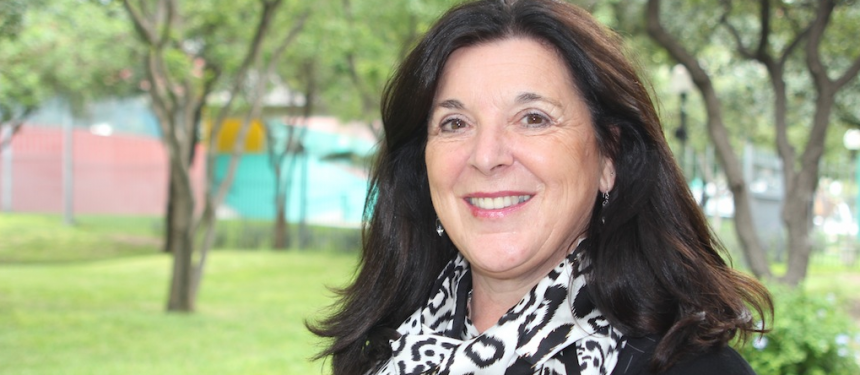VT: We exceeded our goal in terms of international student numbers, so we can’t show any tangible impacts of it, but we don’t know how much international enrolment would have gone up without the strike. Subjectively we hear that students faced challenges in getting their visas, but I think that’s an issue in Canada, period. Our international students who want to come to Canada are disadvantaged because of the cumbersome visa processing, and that’s probably Canada’s greatest challenge.
News and business analysis for Professionals in International Education
Have some pie!
Vianne Timmons, President, University of Regina, Canada

The PIE: How do you incorporate the indigenous student population into your international strategy?
Our international students who want to come to Canada are disadvantaged because of the cumbersome visa processing, and that’s probably Canada’s greatest challenge
VT: Saskatchewan is a province that has a high number of indigenous students. At the University of Regina, approximately 11% of our population is self-identified as Aboriginal. That’s very high compared to other campuses across Canada. We want to make sure that all our students get an international experience, but for many of our Aboriginal students that is very difficult especially, if they come from more impoverished communities and families.
Many of them are single mums with children, for example. We have to be very explicit about the need to provide support for these students. What I’ve done from the president’s office is provide a grant for indigenous students to go on international exchanges. Two students we supported to go to China. At the same time, we had five students go to Mexico. I think in particular for aboriginal students, when they connect with other indigenous populations around the world, it’s a common ground for them.
The PIE: There aren’t many female leaders in international education. What’s been your experience?
In internationalisation and in women’s leadership in post-secondary education, we’ve got a long way to go
VT: Being a woman president is a challenge in itself, and being a woman in international education compounds that in a way. There are many countries in which I travel where I have to be very careful in the way I dress, and in the way I interact with people. That’s interesting for me as a woman from Canada, and also as a woman who feels very strongly that oppression isn’t a cultural or religious right. But my job is to support my institution, so as a woman leader, when I get in situations where perhaps women are not respected as as I am used to them being, I have to manage and do the best to suppress that outrage I sometimes feel.
In internationalisation and in women’s leadership in post-secondary education, we’ve got a long way to go. I hear people say, “We’ve come so far,” but I’d say that we really haven’t. I have a different view on how far we’ve come.
The generation before us – our mums – came far, and we’re stagnating in terms of where we’re going. We need to speak the truth and say that having 16 female university presidents out of 94 in Canada is unacceptable in this day and age. Nobody can tell me there aren’t qualified women out there. I see so many young women enter the field of internationalisation, and they’re passionate and idealistic. Maybe they will be the ones to make the breakthrough that we haven’t been able to do yet.
The PIE: Canada is quite fragmented because of competition among provinces, how do you see that affecting it as a study destination?
VT: It is fragmented, however one of our gifts in Canada is that our institutions are primarily public and they are all of high quality. The homogeneous quality across the country is our strength. Students have the ability to transfer not as quite as seamlessly as I would like, but their credentials are held in high regard no matter what institution they attend.
Still looking? Find by category:



What is really detrimental to international students who are deciding where to study is the lack of a national higher education quality standard (similar to the QAA in the UK) in Canada, as many international students need a “form of reference” that indicates the quality of the instiution and in relation to others. I know that British Columbia has the EQA designation (but this is still in its infancy), and central national governing quality body is what is really needed (especially considering that most universities and collegesare public institutions) and promoted to international students.